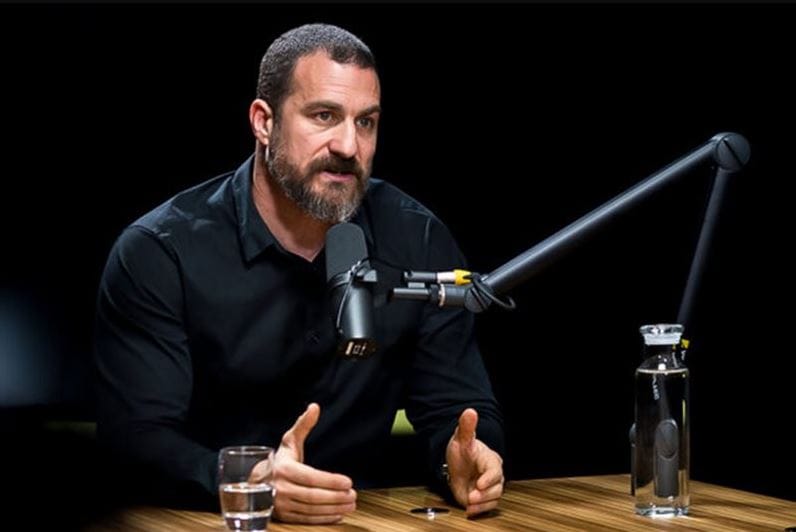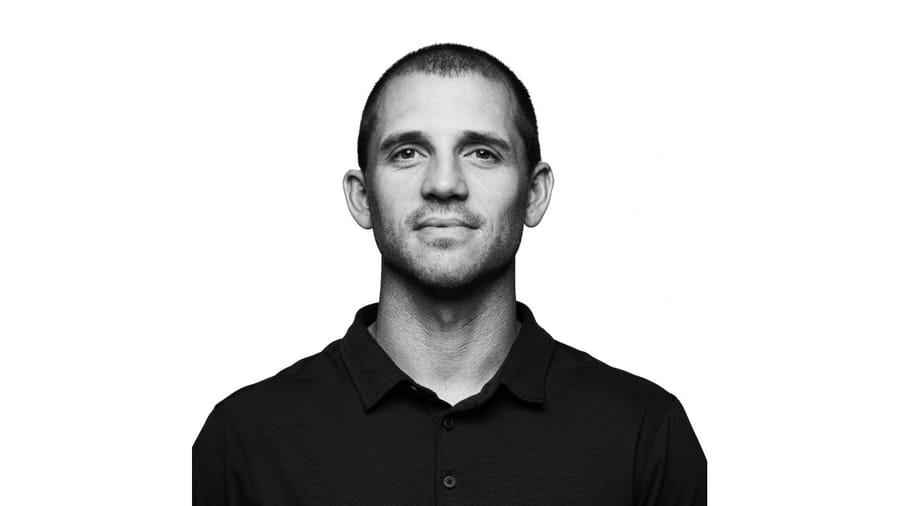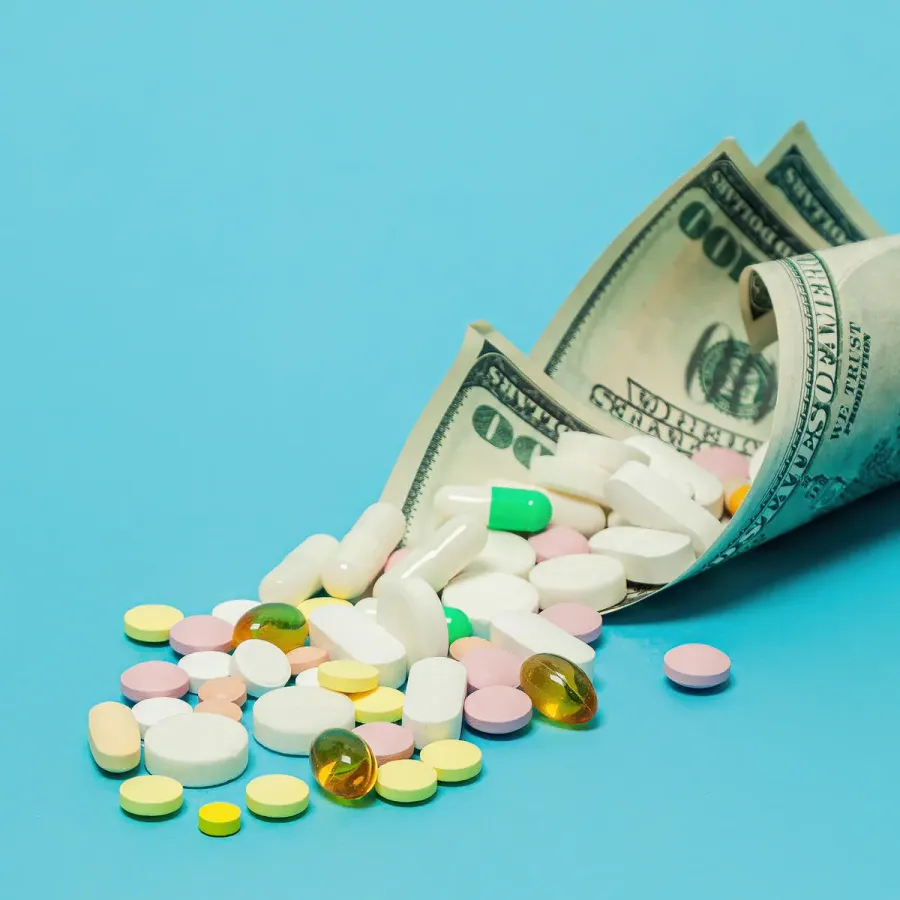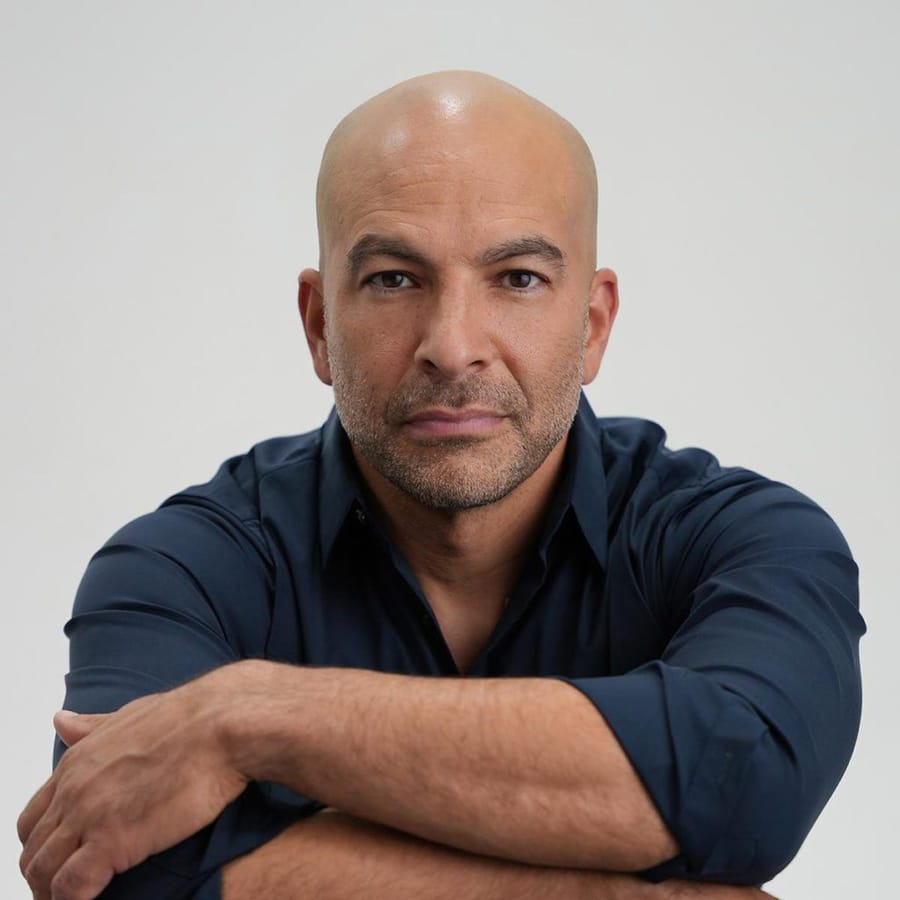I listened to every Huberman Lab Podcast so you don't have to. These are the supplements used and recommended by Andrew Huberman to Improve your foundational health, get better sleep, increase testosterone, maintain a healthy brain, and enhance focus
📑 Table of Contents 📑
Foundational Supplements for overall health
Supplements for boosting testosterone
Supplements for Enhancing Focus and Mental Performance
Supplements for Maintaining Good Cognitive Function
Other Supplements Huberman Mentions Taking
Supplement List
*To be transparent I have made product links affiliate but have linked supplements mentioned by Huberman and ones I have used/researched
1. Foundational Supplements for overall health
- Vitamin D: Essential steroid hormone (Momentus, naturemade)
- Vitamin K2: For cardiovascular health (Life Extensions)
- Multivitamin / AG1: Broad spectrum micronutrients (AG1 , Multivitamin: Momentus ,Life Extensions, Opti-Men)
2. Supplements for Boosting Testosterone
- Tongkat Ali: 400 mg daily (Momentus, Solary)
- Fadogia Agrestis: 400 - 600 mg daily (Momentus, DoubleWood)
- Zinc: Essential for healthy testosterone levels (Momentus, Jarrow)
- Boron: 2 - 4 mg per day (Life Extensions)
3. Supplements for Enhancing Sleep Quality
- Magnesium L-Threonate: 140 mg (Momentus, Life Extensions)
- L Theanine: 100-300 mg (Momentus, Bronson)
- Apigenin: 50 mg (Swanson)
- Myo-Inositol 900mg (Momentus, Jarrow)
- GABA: 100 mg (occasionally) (Throne, NOW)
- Glycine: 2 grams (occasionally) (Throne, Life Extensions)
4. Supplements for Enhancing Focus and Mental Performance
- Caffeine (preferred beverage)
- Alpha GPC: 300mg (Momentus, Nutricost)
- L-Tyrosine: 500 mg (Momentus, Nutricost)
- Phenylethylamine (PEA): 500 mg (Nutricost)
5. Supplements for Maintaining Good Cognitive Function
- Omega 3’s: 2-3 grams of EPA (daily) (Momentus, Nordic Naturals)
- Creatine: 5g (daily) (Throne, Nutricost)
- Glutamine: 1-10g (daily) (Momentus, Nutricost)
6. Other Supplements Huberman Mentions Taking
- Rhodiola Rosea: Adaptogen' that can reduce fatigue (Momentus, DoubleWood)
- Ashwagandha: Adaptogen' that can buffer cortisol (Jarrow, Life Extensions)
Intro
Andrew Huberman is a professor of neurobiology and ophthalmology at Stanford School of Medicine and is a neuroscientist as well as a podcaster/educator known for his popular podcast “The Huberman Lab podcast”. In his podcast he shares his knowledge on optimizing performance, recovery, and overall health including his recommendation for supplements based on the latest scientific papers and publications. Andrew's approach to supplementation is methodical and evidence-based which is refreshing in a space where navigating through the multitude of options and options can be daunting.
In this comprehensive guide, we will delve into Andrew Huberman's personal supplement list. We'll explore the various aspects of health that his supplements target and the dosage and brands he recommends. Huberman generally recommends using single formulation supplements to target specific aspects of health where one can ideally measure or observe any impacts to make sure a supplement is making a positive impact and worth its value.
I will also provide a link to these supplements from both Huberman’s partner supplement company Momentus and a often cheaper high quality version that I have researched and personally use. These will all be Amazon links to make things easy and for transparency I have made them affiliate links to hopefully generate some supplement money for myself.
The detailed information on supplements has been distilled from listening to Huberman’s podcast and from other sources/experts like Examine.com, Rhonda Patrick, Peter Attia, and many other guests Andrew has brought on his podcast. I will also share a little bit of my personal experience having tried these supplements and some advice and key points from my own research as someone who has been interested in this space for many many years.
I am Jake Kaiser and have been obsessed with performance, supplements, and lifestyle optimization my entire life and follow along for more articles on topics like this and if you want to build a better and healthier life.
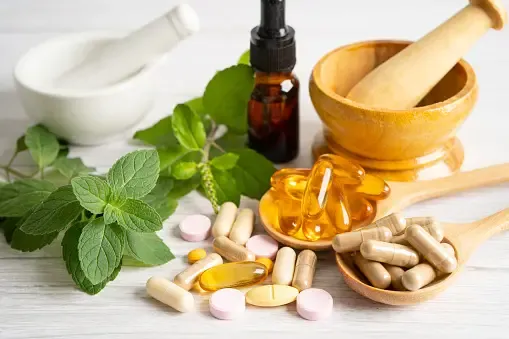
Foundational Supplements for overall health
Andrew's supplement list starts with things that support overall health from a high level and generally ensure our bodies have the building blocks needed for processes and life.
Huberman Lab Episodes on this topic:
1. Developing a Rational Approach to Supplementation for Health & Performance
2. Fitness Toolkit: Protocol & Tools to Optimize Physical Health
3. Dr. Rhonda Patrick: Micronutrients for Health & Longevity
Vitamin D (1000-500IUs daily) Momentus, naturemade
- Supports overall hormone production, including testosterone.
- Plays a role in maintaining healthy sperm count and quality.
- Helps regulate mood and energy levels.
I like to change my dose of Vitamin D based on daily sun exposure and time of the year. For example, in the middle of the winter I take 5,000IUs daily and reduce this to 0-1,000 IUs in summer when outside more. I also highly recommend you get your vitamin D levels tested as I found out myself and many friends and family had low levels even with spending a ton of time outside. Getting my levels back into the ideal range made drastic changes to my physical and mental health and for ~$30 test think this has one of the biggest outsized returns on my health and hope to encourage others to see if this is an issue for them as well.
Multivitamin / AG1 (daily) AG1 , Multivitamin: Momentus ,Life Extensions, Opti-Men
- AG1 is a sponsor of Huberman's podcast and Andrew takes it daily. AG1 is a green powder drink that boasts being a broad spectrum blend containing 75 vitamins, minerals, antioxidants, and adaptogens.
- If AG1 is too expensive a good quality multivitamin fills this same niche
- A broad spectrum multivitamin or product like AG1 is to ensure all one’s bases are covered and you are not lacking any nutrient in your diet.
I like to take a quality multivitamin as needed based on diet. For example if I ate badly that day or the previous day I will add a multivitamin for good measure but will often skip this when my diet is on point. I don't see any harm in including a multivitamin AG1 daily but find my method more economical.
Vitamin K2: ( I take 2600 mcg 3-4 times a week) Life Extensions
- Improves cardiovascular health, reduces calcium deposition in arteries, and helps with bone health
- Take K2 and D3 together for best results
- Make sure you get K2 (Metaquinone-7 is best absorbed)
You may also want to consider including a probiotic or live cultured food to help with this foundational health category. Probiotics and Prebiotics, like fiber, are key for keeping gut microbes healthy and I categorize this more as a nutritional elements but figure it should be mentioned here as well.
Supplements for Boosting Testosterone
Testosterone plays a crucial role in various bodily functions, including muscle growth, bone density, and mood regulation. Andrew's specific testosterone support supplements may be personalized to his needs and hormone optimization can be very personalized. Before reaching for supplements try and ensure you are doing the foundational things for testosterone production, such as regular exercise (lifting weights specifically), a balanced diet, and healthy stress management.

Huberman Lab Episodes on this topic:
1. The Science of How to Optimize Testosterone & Estrogen
2. Dr. Kyle Gillett: Tools for Hormone Optimization in Males
Tongkat Ali: 400 mg daily (Momentus, Solary)
- herb traditionally used in Southeast Asia
- Stimulates luteinizing hormone production, which signals the testes to produce more testosterone.
- Supports healthy testosterone levels, potentially enhancing muscle mass, energy levels, and vitality.
Fadogia Agrestis: 400 - 600 mg daily (Momentus, DoubleWood)
- A plant from Nigeria that enhances testosterone production by stimulating Leydig cells in the testes.
- Promotes the release of luteinizing hormone, a key factor in testosterone synthesis.
- Further research is warranted to fully understand its mechanisms and long-term effects on testosterone levels.
Zinc: ~15mg daily (Momentus, Jarrow)
- Essential for enzymatic reactions involved in testosterone metabolism.
- Adequate intake supports optimal testosterone production.
- Helps regulate metabolism and hormone balance.
- Maintaining a balanced diet with zinc-rich foods or judicious supplementation is crucial for healthy testosterone levels.
Be aware Zinc can strip the body of copper so I prefer to have a Zinc supplement with some added Copper and monitor Copper levels as needed with testing. Also many multivitamins contain zinc so be cognizant of total zinc dosage.
Boron: 2 - 4 mg per day (Life Extensions)
- Influences steroid hormone levels, including testosterone.
- Supports testosterone synthesis and metabolism.
- Care should be taken not to exceed recommended dosages, as excessive intake may have adverse effects on health.
Huberman's Sleep Stack Supplements
Andrew has had multiple episodes highlighting the importance of sleep and how this foundational aspect of health pays dividends across all aspects of health. Sleep is one of the main levers we have to improve our health, focus, and overall life quality and luckily for us Huberman has some supplements to help with sleep that have had a big impact on my sleep.
Huberman Lab Episodes on this topic:
1. Master Your Sleep
2. Sleep Toolkit: Tools for Optimizing Sleep
3. Dr. Matthew Walker: The Science & Practice of Perfecting
Magnesium L-Threonate: 140 mg (Momentus, Life Extensions)
- Helps regulate neurotransmitters involved in sleep, such as GABA.
- May promote relaxation and reduce muscle tension, aiding in falling asleep and staying asleep.
- Supports the natural production of melatonin.
- Magnesium L-Threonate specifically crosses the blood brain barrier and calms the nervous system more effectively than other forms of magnesium
L Theanine: 100-300 mg (Momentus, Bronson)
- Found in green tea, L-theanine has calming effects on the brain.
- Promotes relaxation without sedation, helping to reduce stress and anxiety that can interfere with sleep.
- May improve sleep quality by increasing alpha brain waves associated with relaxation.
Note that for some L-Theanine can makes dreams more vivid and memorable. If you find these dreams so intense they wake you up reducing the amount of L Theanine or skipping this part of the sleep stack is advised.
Apigenin: 50 mg (Swanson)
- Flavonoid found in several plants, including chamomile, parsley, and celery
- Has calming and anti anxiety effects through activation of GABA receptors in the brain
- Can reduce sleep onset
Note that Apigenin is a mild estrogen suppressor so should be taken with care and this in mind. Due to this, women should likely skip this one.
Myo-Inositol: 900mg (Momentus, Jarrow)
- sugar alcohol that is involved with cell signaling for hormones to maintain healthy sleep patterns
- May improve sleep quality and ability to fall back asleep after night awakenings.
Huberman seems to use this to help fall back asleep and reduce the time awake in the middle of the night
GABA: 100 mg (occasionally) (Throne, NOW)
- Primary inhibitory neurotransmitter in the brain
- There is some debate as to whether GABA crosses the blood-brain barrier but may work on gut-brain axis
Huberman recommends only using GABA when needed and prefers to use precursors to neurotransmitter than dosing them directly
Glycine: 2 grams (occasionally) (Throne, Life Extensions)
- Non-essential amino acid found in animal products and Collagen
- Supports healthy sleep architecture, including deeper and more restorative sleep stages.Research showed Glycine reduced latency to sleep onset and latency to slow wave sleep [link]
Sleep Habits
In addition to supplementation below is a list of good habits and protocols for good sleep hygiene mentioned by Huberman and the sleep experts he has interviewed.
- Reduce stressors or stimulation prior to bed: Things like work emails and social media scrolling activate the brain and are not conducive for preparing for sleep.
- Avoid caffeine intake after 2pm
- Avoid bright lights around bedtime: Reduce light intensity 2-3 hours before bed and try and have any turned on lights low to the ground and red hued (blue light is the worst)
- Reduce fluid intake prior to bed: This helps avoid waking up multiple times to urinate
- Sip, don't gulp, your last drinks of the day: The speed at which you ingest fluid can affect your need to urinate.
- Avoid eating before bed: Try and not have a meal 2-3 hours before bed
- Practice mind calming practices like NSDR and yoga nidra before bed to relax
- Sleep in a cold room: lower temperatures improve sleep quality and a drop in body temperature signals to the body it’s time to sleep
- Get out early for Morning light exposure: This help set your internal clock
- View the sunset: The specific hues of light help the brain understand it’s evening

Huberman's Thoughts on Melatonin
Dr. Huberman warns against taking melatonin for sleep. Though it helps fall asleep, many drawbacks exist:
- Increased difficulty staying asleep: It might knock you out but not keep you out.
- High dosage: Supplement doses (3-6mg) are much higher than natural production.
- Dosage inaccuracy: Many brands lack precise dosing, raising concern about actual intake.
Therefore, Dr. Huberman suggests improving sleep hygiene and using the supplements mentioned above before reaching for melatonin. The one time I use melatonin is for helping with adjusting to a different time zone when traveling.
Supplements for Enhancing Focus and Mental Performance
Huberman, like many of us, is trying to get the most out of each day mentally and physically so has had a number of episodes and conversations on supplements to increase focus and mental performance. These supplements should be used when needed and taken around a
Huberman Lab Episodes on this topic:
1. Focus Toolkit
Caffeine (preferred source)
- Improves cognitive function by blocking adenosine receptors, leading to increased alertness and arousal.
- Enhances attention, concentration, and reaction time
- Research suggests that moderate caffeine intake can have beneficial effects on cognitive tasks, such as memory consolidation and executive function.
Huberman is big on delaying the ingestion of caffeine for at least 90min after waking to reduce the chances for a caffeine crash and letting the body naturally clear adenosine prior to blocking these receptors with caffeine.

Alpha GPC: 300mg (Momentus, Nutricost)
- Enhances cognitive function by increasing acetylcholine levels in the brain, a neurotransmitter crucial for memory and learning.
- Supports neuroplasticity, the brain's ability to adapt and form new connections, potentially leading to improved cognitive performance.
- Alpha GPC supplementation has shown promise in enhancing memory, focus, and overall cognitive function, particularly in aging populations or individuals experiencing cognitive decline.
L-Tyrosine: 500 mg (Momentus, Nutricost)
- Acts as a precursor for dopamine, norepinephrine, and epinephrine, neurotransmitters involved in cognitive function, mood regulation, and stress response.
- Supports mental alertness, focus, and cognitive flexibility, especially in challenging or stressful situations.
- Supplementing with L-Tyrosine may help maintain optimal cognitive function under conditions of stress, fatigue, or sleep deprivation by replenishing neurotransmitter levels and supporting cognitive resilience.
Phenylethylamine (PEA): 500 mg (Nutricost)
- Functions as a neuromodulator, influencing the release of dopamine and norepinephrine in the brain, enhancing mood and cognitive function.
- Supports mental clarity, attention, and cognitive performance by promoting neurotransmitter activity associated with motivation and focus.
- While phenylethylamine supplementation may offer temporary cognitive benefits, its effects can vary among individuals, and more research is needed to fully understand its long-term impact on cognitive function.
Supplements for Maintaining Good Cognitive Function
These supplements are more focused on brain health and maintaining optimal cognitive function in the long term vs. a short term boost to mental performance.

Huberman Lab Episodes on this topic:
1. Nutrients For Brain Health & Performance
2. Optimize & Control Your Brain Chemistry
3. Dr. Rhonda Patrick: Micronutrients for Health & Longevity
Omega 3: 2-3 grams of EPA (daily) (Momentus, Nordic Naturals)
- Essential fatty acids found in omega-3's, such as EPA and DHA, play a crucial role in brain health and cognitive function.
- Supports neuronal membrane integrity and neurotransmitter function, promoting optimal cognitive performance.
- Studies suggest that omega-3 supplementation may improve memory, attention, and overall cognitive function, particularly in individuals with cognitive decline or mood disorders.
- Support healthy hormone production, including testosterone.
- Have anti-inflammatory properties, which may help with exercise recovery and overall health.
The research on Omega 3 fatty acids is so rich I personally think of my Omega 3 supplement as one of the foundational supplements for overall health.
Creatine: 5g (daily) (Throne, Nutricost)
- Enhances cognitive function by supplying energy to brain cells, particularly during tasks requiring short bursts of intense mental effort.
- Improves working memory and executive function, facilitating tasks such as problem-solving and decision-making.
- Research suggests that creatine supplementation may benefit cognitive performance, especially in vegetarians and vegans who typically have lower creatine levels.
Glutamine: 1-10g (daily) (Momentus, Nutricost)
- Acts as a precursor for the neurotransmitter glutamate, essential for cognitive processes like learning and memory.
- Supports the integrity of the blood-brain barrier, protecting the brain from harmful substances.
- Supplementing with glutamine may help enhance cognitive function, particularly in situations of stress or cognitive fatigue, by replenishing neurotransmitter stores and supporting brain health.
Other Supplements Huberman Mentions Taking
Rhodiola Rosea: (Momentus, DoubleWood)
- Enhances cognitive function by modulating neurotransmitter activity, particularly serotonin, dopamine, and norepinephrine, which are involved in mood regulation and cognitive performance.
- Supports mental resilience and stress adaptation, potentially improving cognitive clarity and focus under challenging conditions.
- Rhodiola supplementation has been associated with reduced mental fatigue, improved attention, and enhanced cognitive function, making it a valuable tool for maintaining mental sharpness and well-being.
Ashwagandha: (Jarrow, Life Extensions)
- An adaptogenic herb that may help reduce stress and buffer cortisol levels.
- Some research suggests it may directly increase testosterone levels in men.
- Supports cognitive function by reducing stress and promoting relaxation through its adaptogenic properties.
- Enhances memory and cognitive processing speed by modulating neurotransmitter activity and protecting neurons
I personally do not like to use Ashwagandha too regularly due to possible negative side effects yet will always have it around for high stress periods to help my body cope and keep cortisol levels in check. For example I will always bring Ashwagandha while traveling knowing that it stresses me out to a degree and will also use it after prolonged periods of intense exercise to help my body body down and get back to a healthy baseline.
Conclusion
When considering supplement regimens, it's essential to find a balance between personalization, effectiveness, and cost. While Andrew Huberman's supplement list reflects his specific needs you will want to tailor your supplementation for your specific health and life goals. Keep in mind supplements can have large effects and one should always consult their doctor prior to adding any supplements to their routine. This is in no way medical advice so do your own research and use caution when ingesting anything that can change the function of your body.
I personally have used all these supplements expect for Fadogia Agrestis, Myo-Inositol, and Rhodiola Rosea with great effect and a vast majority are still in my medicine cabinet for daily or occasional use. Please let me know if you have any more questions on my experience with these supplements or have any conflicting thoughts on what I have written.
Thanks for reading and and a massive thank you to Andrew Huberman for sharing his passion for science and making topics like supplementation more commonplace and less taboo.
